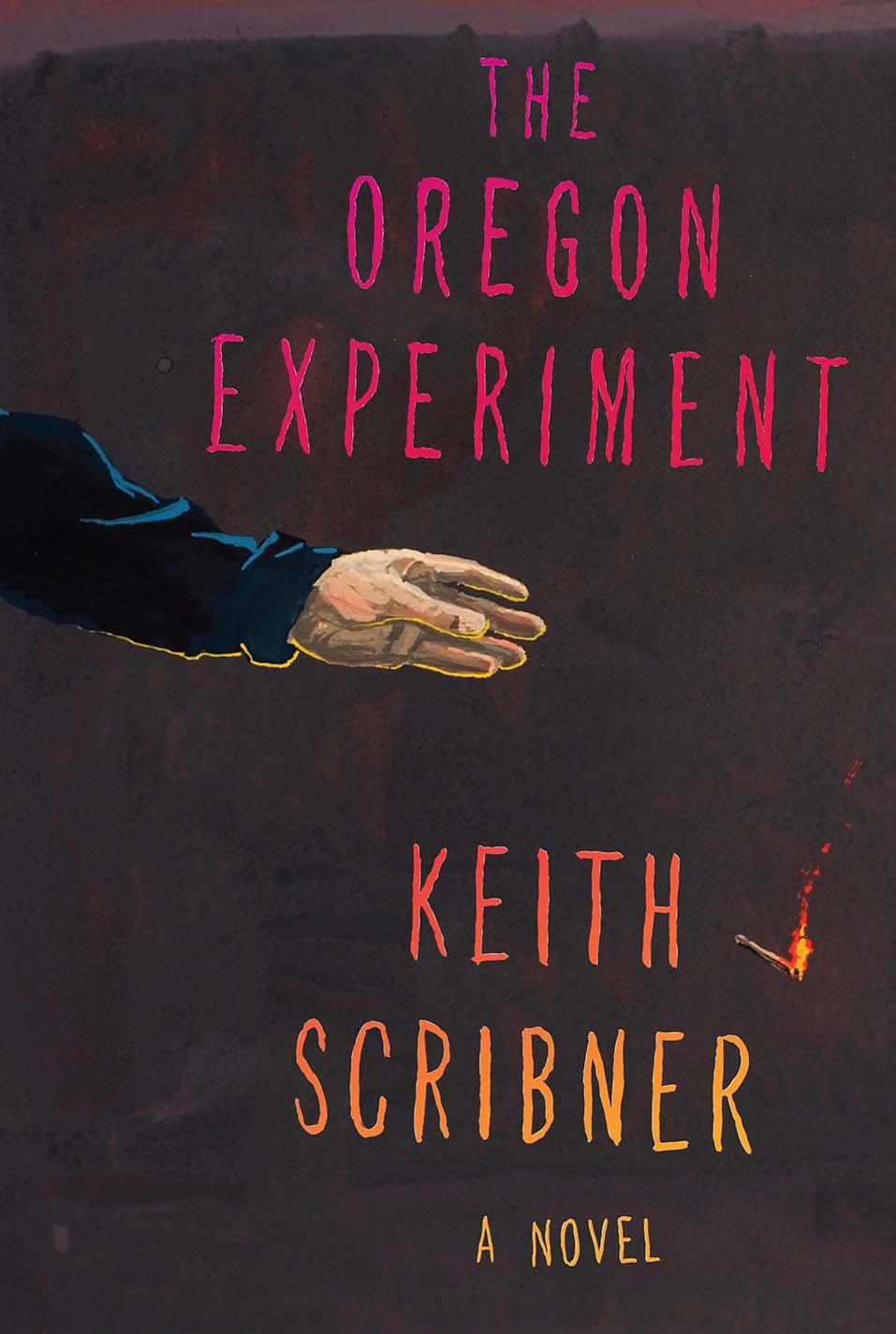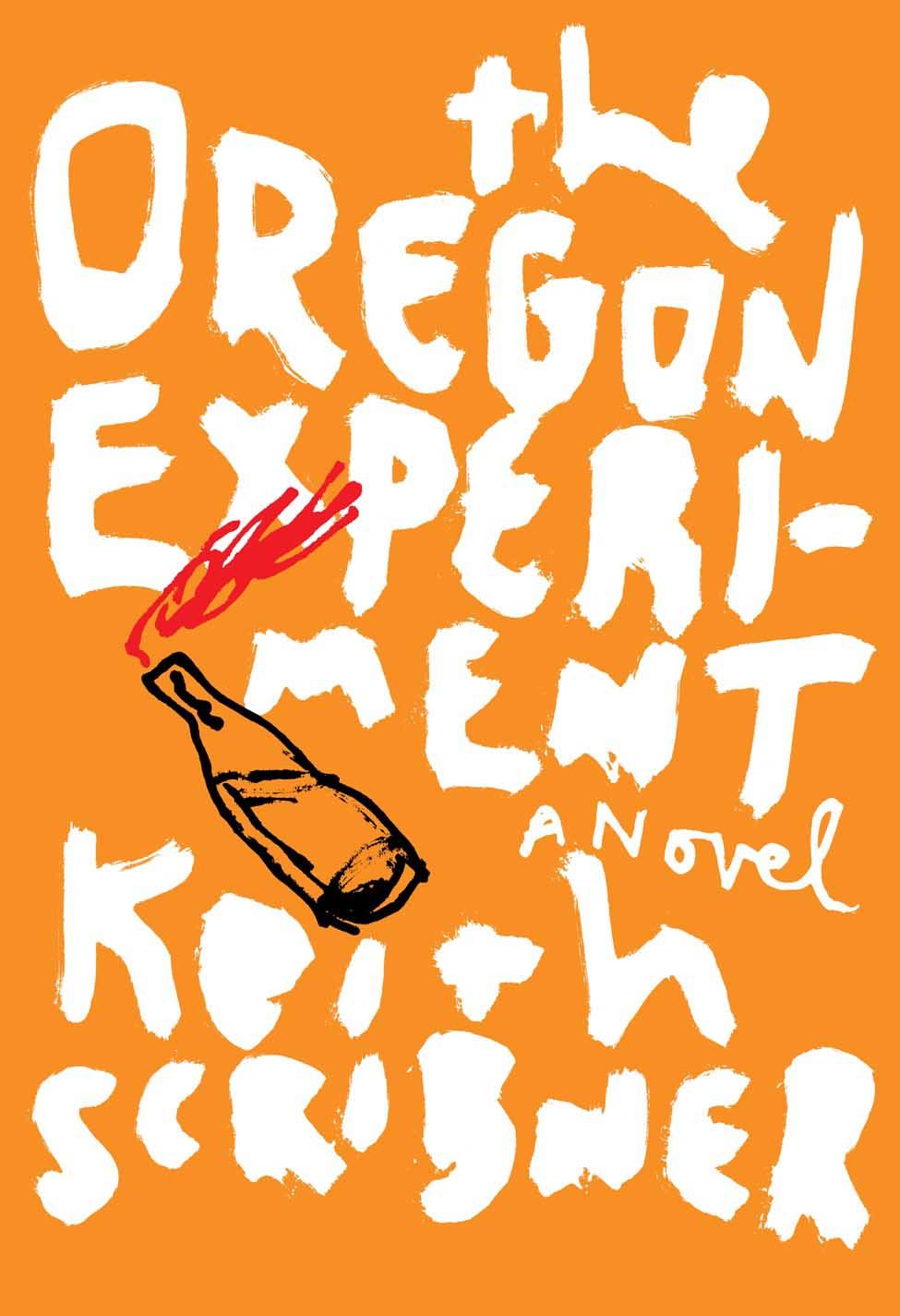The Oregon Experiment
2011
Naomi and Scanlon Pratt are at the threshold of a new life. Transplants from back East to small-town Oregon, he’ll be a professor at the university-teaching mass movements and domestic radicalism-and she, a professional “nose” who lost her sense of smell, is pregnant with their first child.
For Scanlon, all of this is ideal. With ample opportunity for field research, he finds a subject in Clay, a young anarchist who despises him but adores his wife, and also becomes involved with a local secessionist movement—and its sensuous, free-spirited leader. Naomi, while far less enchanted, discovers that Oregon offers a multitude of scents. Her nose has returned-though she isn’t pleased with everything she smells.
As they welcome their newborn, their lives become increasingly intertwined with Clay’s, the stakes begin to rise, and they soon must decide exactly where their loyalties lie-before the world Scanlon has been dabbling in threatens to engulf them all. A contemporary civil war between desire and betrayal, rich in crisp, luxuriant detail, The Oregon Experiment explores a minefield of convictions and complications at once political, social, and intimately personal.
Reviews
SAN FRANCISCO CHRONICLE
“Thesis: It is a deft fictioneer who can not only create unlikable characters, but make the reader care about them enough that the reader chases them to the end of the book to see what’s going to happen—are they going to wake up, get hammered by fate, rise to some epiphany? I don’t mean detestable characters, which are easier to invent; I mean characters that are a touch selfish, self-absorbed, self-indulgent, inconsistently honest, and in general looking out mostly for themselves; which is to say, I suppose, characters who are uncomfortably real, and uncomfortably like their readers, let alone book reviewers….
Naomi Pratt is a gifted nose, as it were, a “perfume designer” whose sense of smell is not only off the charts but the cause of the most interesting and stimulating passages in the book. Her husband Scanlon is a professor of radical politics and mass movements, interested in secessionists and anarchists, and delighted to discover small shaggy examples of both groups in their new town….
But ah, the best laid schemes gang aft agley, do they not? And taking smooth advantage of anarchists is dangerous, and being attracted to the sensuous leader of the hapless secessionists is dangerous, and Naomi’s attraction to a grim young radical is dangerous, and Scribner ably screws the tension ever tighter as his story lengthens.
Will the growing protests in town against state and federal authority explode past theater into savagery? Will Scanlon get caught in the turbulence he has done more than a little to foment? Will Clay, the intent young anarchist, escape his haunted childhood, or survive his own violence?
Will the Pratts’ marriage survive the allures of betrayal? “And the lies begin,” thinks Naomi, “the small lies that build the levee, a fistful at a time, around the big lie.”
Oddly, for me, the character who is most real is the one who speaks the least, the young anarchist, Clay; only once, near the end, does he let loose his heart, in a torrent of words explaining the car crash that killed his brother, a monologue wrung right from his soul. For all his cold urge to destroy the trappings of wealth and authority, he is the most honest of Scribner’s players, direct in word and action to the bitter end….
The Oregon Experiment has many virtues—Scribner has a sharp eye for the complicated grace and endless capacity for self-delusion among our species, he makes the potential cultural and economic independence of Cascadia worth pondering rather than snickering at, and the attention to scent and smell add a lovely subtle layer of narrative; “his scalp and skin were in the dusty family,” Naomi thinks of her husband, “canvas stored in the basement, pages of a book pulled from a garage-sale box, a stranger’s wool sweater.” Naomi again: “Third grade was the smell of chalk dust and Twinkies … seventh grade was the butter and apricot smell of her own blossoming sexuality; Vermont was mint, creosote, body putty”….
I find myself unable to forget the pale grim anarchist Clay, who secretly just wants to live quietly with his girlfriend and daughter, and build a family to replace his broken one; and I am far more alert to scent than I was when I started the book; and I am sufficiently intrigued by Scribner’s storytelling skills to go read his other two novels…. I would like to spend more time reading the mind that invented their story.”
– San Francisco Chronicle, July 10, 2011s
THE RUMPUS “The Oregon Experiment captures the sheer physicality of new parenthood as well as its emotional tyranny in our age of awareness better than anything I’ve read, fiction or nonfiction. When Scanlon’s divorced parents descend upon Scanlon and Naomi and little Sammy, the grandparents both heighten the tension in the marriage and provide the reader considerable comic relief, without ever distracting from the deeper movement of the story. In many ways, The Oregon Experiment belongs in the same class of modern social realism as Jonathan Franzen’s The Corrections and Freedom. It is a hugely ambitious, decidedly modern, distinctly American novel, with complicated family dynamics, and remarkable depth of character and psychological nuance. The action often seems to arise as much from the political zeitgeist as the characters’ natures. But Scribner is more sympathetic to his characters than Franzen, and for all their transparent foibles, we’re never tempted to think the author holds them in contempt. We feel empathic rather than dirtied when their good intentions and ideals go astray, as they must in a world that is not particularly kind to ideological purity. Ultimately, The Oregon Experiment is a wonderful meditation on marriage and healing, and what we may be willing to sacrifice for both. A couple of the scenes between Scanlon and Naomi are excruciating in their pointed admixture of love and hate. It is a novel about compromises made and refused, and the way the political is impossible to disentangle from the personal. And yet for all its dynamic story-telling and clashing ideals, it is as sensuous a novel as I can remember, uniquely grounded in the sense of smell..”
– Daniel Stolar on The Rumpus, Aug. 2, 2011 (click here for full review)
“The award-winning Scribner can’t resist a friendly dig at Douglas’s radical movement folks through disgruntled Scanlon and Naomi, but these lighter moments never overshadow the genuine regard Scribner has for their commitment to life outside the mainstream. Excellent literary fiction with an occasionally humorous touch.” – Library Journal starred review
“The Oregon Experiment is irresistible. Trust me…It made me see and feel and experience the world differently…Divinely inspired and highly plausible….Dazzling.” – Caroline Leavitt, CarolineLeavittville (click here for full interview)
“…Thus begins the experiment, one of making a new life among Oregon’s latter-day hippies and anarchists, learning to be parents, and discovering the rebellious spirit in themselves and the local population. Scribner’s THE GOODLIFE made quite a splash, and THE OREGON EXPERIMENT is no less ambitious, with rich characters and some amusing plot twists. The theme of the transplanted New York professor dealing with the strange ways of Oregonians may remind some of Bernard Malamud’s masterful A NEW LIFE.” – Booklist
“…The writing is charged, urgent, sensual to the core. Scribner’s character development is so strong and convincing that spending time with this book has changed my sensory perception of the world around me. Through impassioned and acute writing, we don’t just envision the scene in Douglas, we are there. …Scribner writes characters so intensely that we could be satisfied just from reading about how Scanlon and Naomi get on as their relationship goes through shifts and turns, but there is so much more to this novel. As Scanlon’s professional and personal enthusiasm collides with her edgy and tumultuous path back to self, we meet a compelling cast of supporting figures. Clay, the thoroughly complicated young anarchist struggling against the past that haunts his every move, is a perfect foil for Scanlon. Big-hearted and idealistic, Sequoia has a lot to show us about the often closed-off Naomi. Though set in Oregon, the themes and sensuality of The Oregon Experiment are universal, and readers anywhere will relate to the deep characters and lush description of setting and culture. I don’t say this lightly: I’ll be reading this book again within the year.” —Jennifer Tyler in Three Guys One Book (click here for full review)
“In his detailed, nuanced world…Scribner manages to create a contemporary story of the fiercely independent Northwest that nurtured the likes of Ken Kesey and his Pranksters and now threatens to destroy Scanlon and Naomi’s precarious marriage….A rich and funny story of family tension and personal desire mixed with the idealism of radical political movements.” – Bruce Jacobs in Shelf Awareness (click here for full review)
“The Oregon Experiment examines love, passion, alienation, and community. Scribner creates a satisfying work that sheds light on an area of society, which is usually stereotyped in the media. Overall, the novel is engaging and extremely relevant as Occupy Wall Street protests swarm into business districts across the country.” – Tim Lepczyk, (click here for full review)
“…Scribner’s plot is unpredictable and his characters deadly accurate.” -The Advocate (click here for full review)
“In Scribner’s evocative latest, Naomi, a professional nose who’s lost her sense of smell, and her husband, Scanlon, professor of mass movements and radical action, have just moved to Douglas, Ore., for his tenure-track position when Naomi wakes up to find the air full of the smell of mint. What turns out to be an olfactory daydream, however, becomes reality as Naomi’s nose returns and is hungry for experience. Despite the smalltown feel of Douglas, the city is host to forces that threaten to tear apart the young family, namely anarchist Clay and secessionist Sequoia, whom Scanlon meets through field research but quickly loses his objective distance. Naomi, meanwhile, is terrified her revived sense of smell will abandon her again, and, as Clay becomes increasingly involved with Naomi and Scanlon, what once looked like a smart career move for Scanlon starts to feel more like a nightmare. Each character struggles with the line between idealism and realism, and, to his great credit, Scribner (Miracle Girl) avoids making the reader feel lectured to as he plays out his exploration of what happens when ideas and desires get put into practice.” – Publishers Weekly
“Keith Scribner sets his mesmerizing novel in the fascinating and little known world of Pacific Northwestern secessionists, but it’s the emotional lives of his gorgeously imagined characters that prove most anarchic. This is a thrilling, deeply intimate book by a writer at the peak of his craft.” —Ann Packer
“Keith Scribner turns a wacky and radical fringe of the Northwest into an often comic and always sensuous novel with deft writing and palpable characters, including a woman who may possess the most powerful and discerning nose in American literature. The Oregon Experiment is a lively and provocative ride all the way to its enthralling climax.” —Jim Lynch
“Keith Scribner is certainly one of our most gifted and generous writers. In the midst of anarchists, secessionists, violent clashes and desperate plans, he offers uncommon sympathy and grace in a marriage lost then found, an unlikely hero, a world sensuous and rich, and even redemption from what we might fear most—that we can’t run from who we are, that the past is waiting to ambush us.” —David Vann
“The Oregon Experiment deposits its reader at flash points both political and personal: in a town boiling with insurrection and a marriage straining under the pressures of hope and fear. Startlingly empathetic, overwhelmingly sensual, it traces the joys and sorrows of belonging to a country, a spouse, and a family, and the explosive risks we run when we contemplate secession from them.” —Adam Ross
“The Oregon Experiment is engrossing, intelligent, and canny, a novel fully animated by Keith Scribner’s exquisite prose and by a triangle of remarkable characters: the conflicted academic, his wife the professional nose, and their anarchist Lamaze coach. It’s a great read.” —Jess Walter
“Paradise gone wrong? So many of us revere our families and friends while feeling betrayed and insufficient in this furious nation. The Oregon Experiment leads us to reconsider the scuffle of our warfare and incites us to begin finding cures in our own backyards. This exciting, even frightening novel, gives us a profoundly useful look at ourselves.” —William Kittredge



